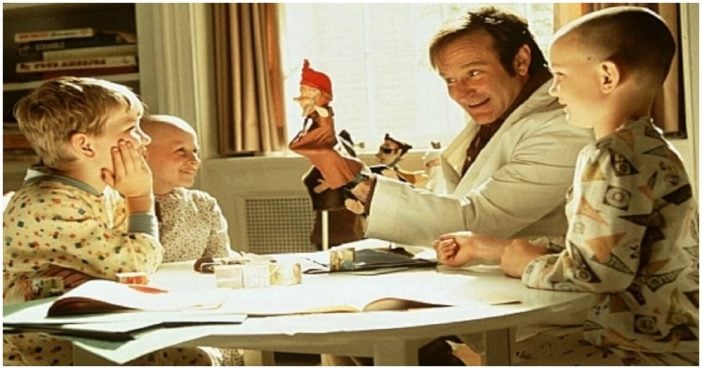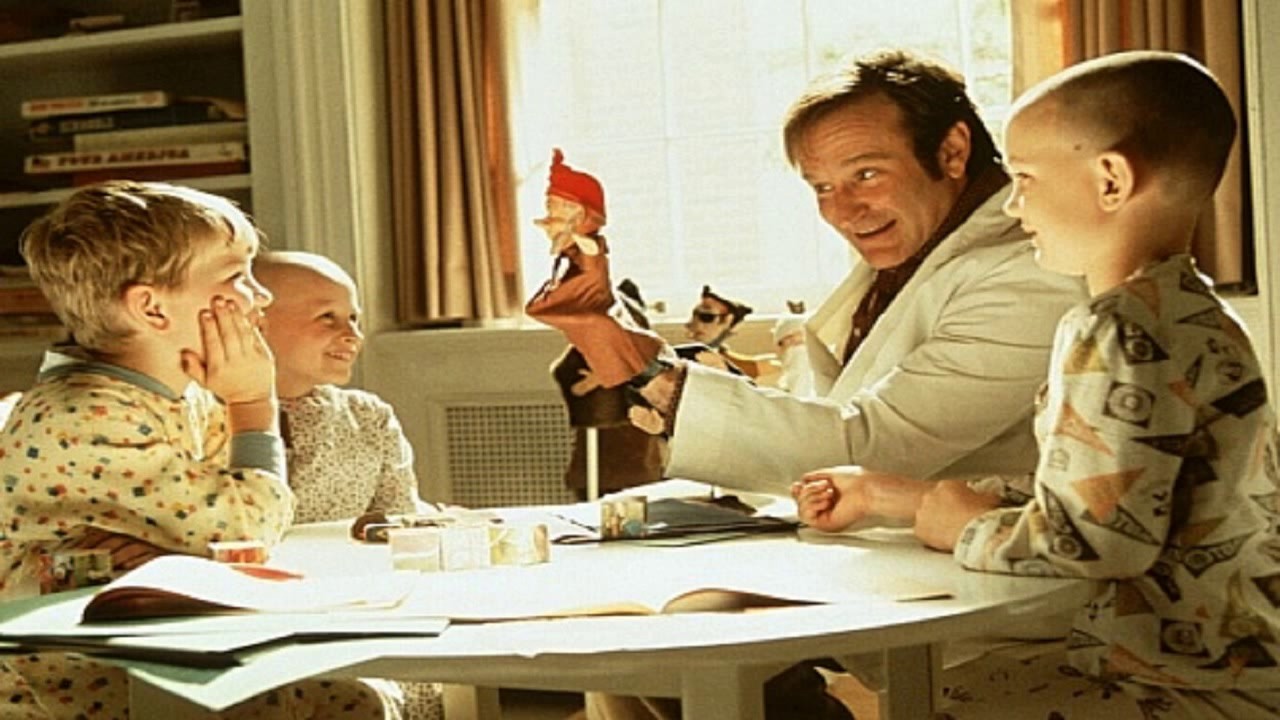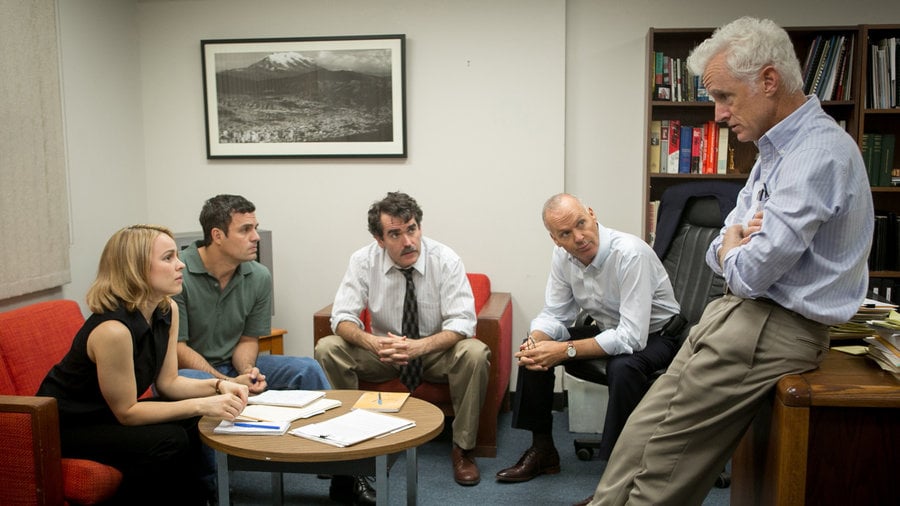
16. Surviving Compton: Dre, Suge & Michel’le

Straight Outta Compton proved that despite assertions to the contrary, exactly zero people forgot about Dr. Dre. That said, the movie’s memory faltered when it came to Dre’s history of hitting women. That changed with the 2015 Sony production, Surviving Compton: Dre, Suge & Michel’le. As the name suggests, the movie delves into Dr. Dre’s rocky romance with Michel’le, a ’90s singer with a 9-year old’s speaking voice.
Michel’le has gone on record about their relationship, depicting Dre as a brutal abuser who shattered her nose and held her at gunpoint. And according to The Independent, Dre had something to say about that –- namely, “stop saying things about that.” Incensed about the film’s depiction of him brutalizing his longtime girlfriend, he demanded the film be pulled and promised to sue. In an attempt to foster skepticism about his portrayal, the creator of Beats by Dre (a really poor name choice in retrospect), pointed out that over the years he dated her, Michel’le never pressed charges against him and allegedly didn’t seek medical help.
Of course, most incidents of domestic assault go unreported, so a lack of criminal charges wouldn’t be surprising. However, this isn’t the place to litigate the past. Apparently, Mr. Beats also opted not to litigate, despite the film airing on Lifetime against his wishes. However, the Doc can take comfort in knowing that celebrities have Teflon reputations, even when they’re flat-out guilty of brutalizing women because life’s super fair.
17. Patch Adams

Patch Adams is a 1998 dramedy in which the late great Robin Williams played the eponymous Hunter “Patch” Adams. Adams was a dedicated doctor who merged the worlds of medicine and clowning, two things known for enriching people’s lives and causing crippling phobias. Williams, himself a comedy legend, sounded ideal for the role. However, critics had some unsavory things to say about the film. Variety derided the movie as “shamelessly sappy and emotionally manipulative.” And a New York Times review chided the film for lowbrow toilet humor and an apparent insistence on fashioning the genie from Aladdin into an Ace Ventura knockoff.
The harshest criticism came from the real Patch Adams himself. In an interview published by Renaissance Universal, the doctor disparaged the film for allegedly making his children weep with displeasure. He felt it created a hallow caricature of him while stepping around all the grueling effort he put into actually helping people. When discussing the film’s real-world impact, Adams pulled no punches: “We put up fake, meaningless heroes to completely divert intelligence from our population. So, our kind of work, if anything, is denigrated.” He went on to lament that the film did nothing to bolster his real-life efforts to heal the sick. Apparently, depicting Adams as a doctor who joked about self-diddling and put enema bulbs on his face didn’t leave a positive impression.
18. Spotlight

In an age where news outlets consistently get pilloried for alleged bias and fakery, Spotlight provides a noble portrait of journalistic courage and integrity. Boasting bigtime actors like Mark Ruffalo, Michael Keaton, and Rachel McAdams, the Oscar-winning movie highlights (spotlights?) how the Boston Globe exposed heinous sexual abuse and a dastardly cover-up by the Catholic Church. A picture this serious demands a standard of honesty worthy of the journalists it represents, but the truth had to suffer for cinema’s sake, apparently.
Specifically, Spotlight paints school representative Jack Dunn as morally ambiguous, if not downright villainous, through the use of fictional dialog. As per the Boston Globe, the movie includes a scene in which Dunn, a then-spokesperson at Boston College, makes a highly questionable statement. Speaking to a Boston Globe reporter, his character utters, “It’s a big school, Robby, you know that. And we’re talking about seven alleged victims over, what, eight years?” At first blush, the line leaves Dunn looking pretty dismissive about molestation. At worst, he looks like the Voldemort of concealing sex crimes.
Dunn sued for defamation. The filmmakers cried foul, claiming that the scene simply showed Dunn
arguing that administrators may have been ignorant of the abuse. However, that seems somewhat undercut by Dunn’s character accusing journalists of “reaching” for a story. Ultimately, the filmmakers reached for their wallets, according to the New York Times. In 2016, they apologized to Dunn and paid him an undisclosed sum as part of a settlement.
19. Black Mass

Black Mass tells the blood-soaked story of James “Whitey” Bulger, a Boston crime boss who murdered and manipulated his way to power. Played by avid hat wearer Johnny Depp, Bulger comes off as having all the charm of a balding, dead-eyed killer, which seems fitting. Critics agreed, hailing his performance as a breath of fresh air amid the stinkfest of goofy acting roles he’s become increasingly known for. However, some individuals indicted Depp’s acting and the film itself as crimes against storytelling.
Among Black Mass’s detractors was the real Whitey Bulger, who refused to even watch the film, according to People. Voicing his dismay through defense attorney Hank Brennan, the mob don indignantly ripped his onscreen incarnation as little more than a parody. In Brennan’s words, “Johnny Depp might as well have been playing the Mad Hatter all over again.” The lawyer continued, blasting FBI corruption as a tremendous “scourge” that the movie ignored. Because why show Bulger strangling a woman and removing her teeth (things he actually did) when filmmakers could have just smeared the cops?
Former Bulger enforcer Kevin Weeks also disapproved. As per The Daily Beast, Weeks acknowledged all the murders in the film as fact but denied everything else. According to him, Bulger “never swore” or yelled at his men and the gangsters never fought each other. He also took offense at Black Mass making him look like a “knuckle-dragging moron.” It’s much better to look like a homicidal Einstein.
20. The Wolf of Wall Street
The Wolf of Wall Street stars enormous piles of drugs that assume the forms of Leo DiCaprio and Jonah Hill. Based on the duplicitous rise of corporate conman Jordan Belfort, the movie takes you on an intoxicating odyssey of unabashed decadence, but not everyone appreciated the picture. According to Andrew Greene, the picture is nothing short of cinematic slander.
If Andrew Greene doesn’t ring any bells, don’t worry. The Hollywood Reporter mockingly pointed out that his character is barely a blip on the film’s radar. But in Greene’s mind, The Wolf of Wall Street unfairly picked on him, depicting him as a dope-swilling degenerate who arranged illegal transactions for Belfort. Moreover, his alleged onscreen equivalent, Nicky “Rugrat” Koskoff wears a toupee and gets treated like the verbal equivalent of a porta-john. In one scene, Belfort and associate Donnie Azoff (played by Jonah Hill) crack jokes about choking Koskoff to death and question his sexuality with extremely colorful language.
Greene took those digs and indignities as a huge affront and sued for $25 million, which doesn’t sound remotely like a cynical cash-grab. Paramount Pictures, Red Granite Pictures, and other entities named in the suit sought to have the case thrown out, according to The Hollywood Reporter. That effort fell flat, however, and a New York judge even ordered Leonardo DiCaprio to testify about the film. However the case turns out, Greene will probably end up more infamous for suing than for anything The Wolf of Wall Street implied.
Credits: grunge.com
